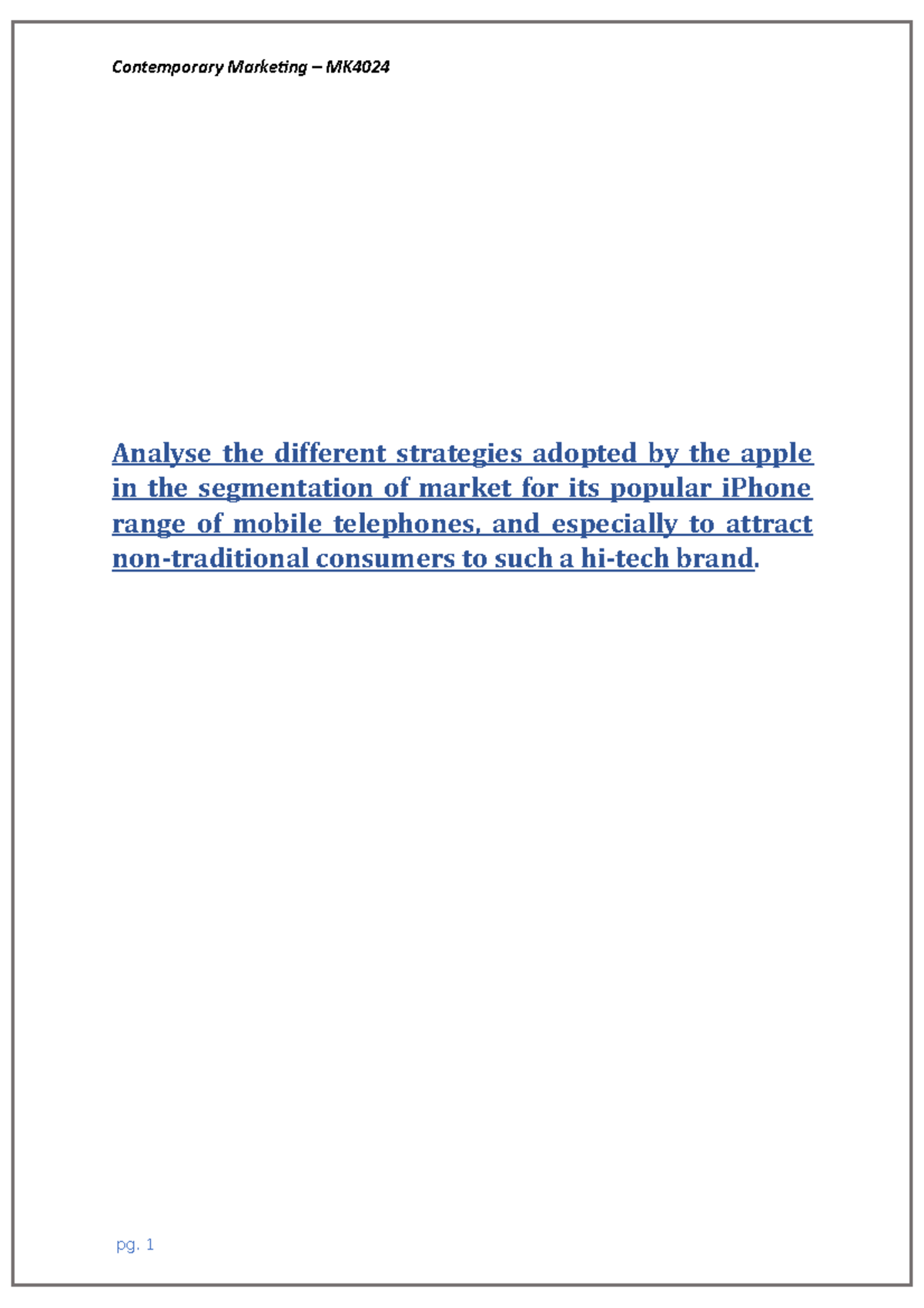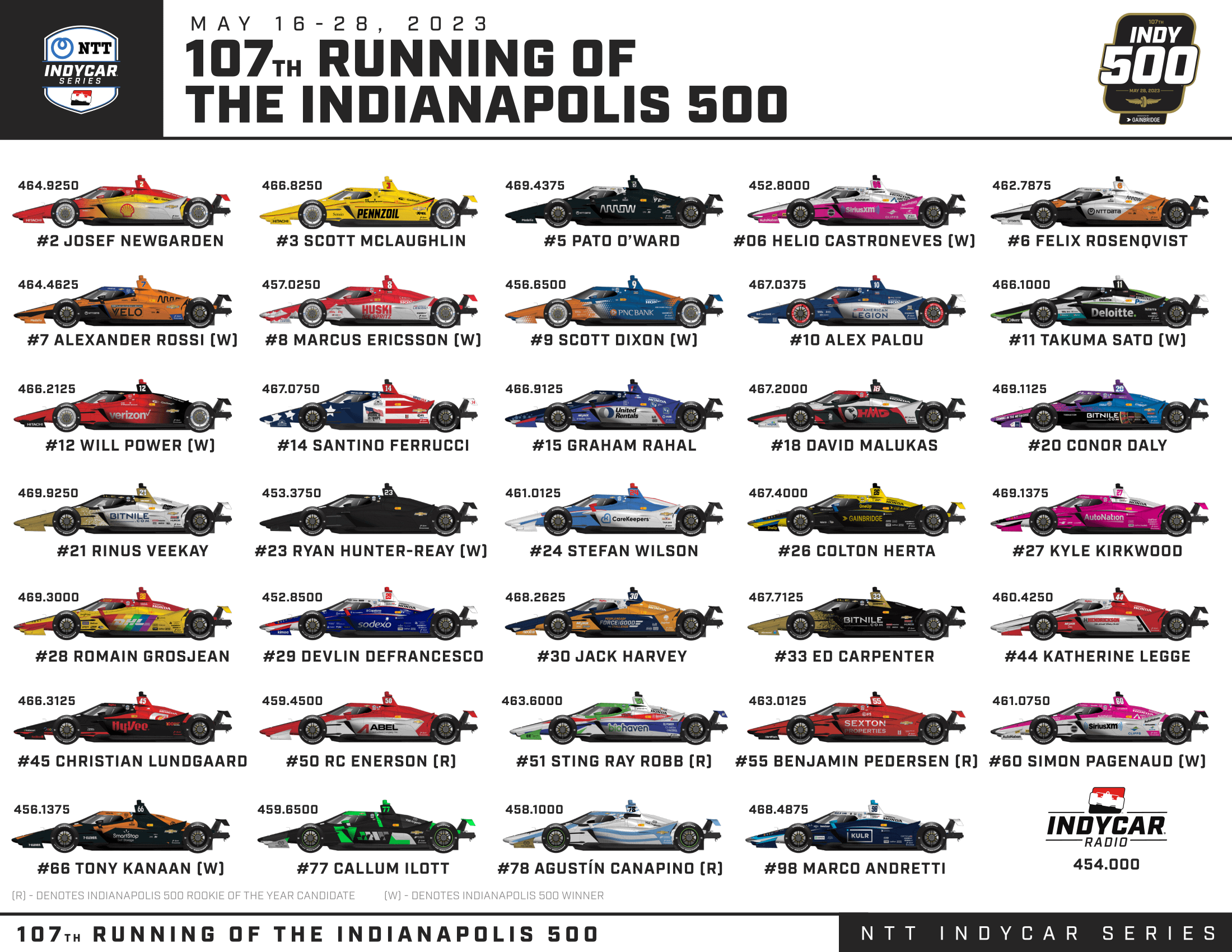Analyzing Apple's Impact On Google's Long-Term Strategy

Table of Contents
Apple's Control of the iOS Ecosystem and Google's Search Dominance
Apple's tight control over the iOS ecosystem significantly limits Google's access to user data and restricts the potential for deeper integration of Google services. This closed-garden approach presents a considerable challenge to Google's strategies, particularly those reliant on extensive data collection for targeted advertising and personalized experiences.
- Limitations on default search engine options within iOS: While Google remains a prominent search engine option on iOS, Apple's ability to promote its own search technology (and Bing, through past agreements) directly impacts Google's search market share and advertising revenue. This limitation reduces Google's visibility and user engagement within the lucrative iOS environment.
- Competition with Apple Maps impacting Google Maps usage: Apple's continued investment in Apple Maps, coupled with its tight integration within the iOS ecosystem, presents a direct challenge to Google Maps' dominance. Apple’s efforts to improve Apple Maps functionality, including increased accuracy and features, actively draws users away from Google Maps, affecting Google's user engagement metrics and potentially its advertising revenue.
- Apple's increasing emphasis on privacy affecting Google's advertising-driven business model: Apple's focus on user privacy, with features like App Tracking Transparency (ATT), directly impacts Google's advertising-driven business model. ATT limits Google's ability to track user behavior across apps, making targeted advertising more difficult and potentially reducing the effectiveness of its advertising platform. This forces Google to invest more in privacy-preserving technologies and alternative advertising strategies.
Google counters Apple's privacy initiatives by investing heavily in privacy-preserving technologies and developing advertising solutions that comply with Apple's stricter privacy regulations. This includes exploring federated learning and differential privacy techniques to maintain data utility while safeguarding user privacy. However, the long-term implications of Apple's privacy-first approach remain a significant factor in Google's strategic planning.
The Rise of Apple's Services and its Threat to Google's Revenue Streams
Apple's expansion into the services sector, with offerings like Apple Music, Apple Pay, Apple TV+, and iCloud, creates direct competition with Google's established services. This competition forces Google to constantly innovate and adapt its strategies to retain its market share.
- Apple Music's competition with YouTube Music and Google Play Music: Apple Music's growing subscriber base poses a significant challenge to YouTube Music and the now-defunct Google Play Music. Apple's integration within the iOS ecosystem gives it a significant advantage in acquiring and retaining subscribers.
- Apple Pay's challenge to Google Pay in mobile payments: Apple Pay’s established presence within the Apple ecosystem poses a substantial challenge to Google Pay. The seamless integration with iPhone and other Apple devices gives Apple Pay a competitive edge.
- The impact of Apple's cloud services on Google Drive and other cloud storage solutions: iCloud’s tight integration with the Apple ecosystem attracts users who value the seamless experience and easy access to their data. This directly impacts Google Drive's market share and growth potential.
To counter Apple's service offerings, Google is focusing on enterprise solutions and deeper integrations with other services. Google Workspace, for example, provides a suite of integrated productivity tools that compete with Apple's offerings for business users. Additionally, Google is focusing on enhancing the overall user experience and functionalities of its existing services to retain customer loyalty.
Hardware Competition and the Impact on Google's Android Strategy
Apple's success with its hardware products (iPhone, iPad, Mac) sets a high bar for Android device manufacturers and influences consumer expectations. This influences consumer perception of quality and creates pressure on Android manufacturers to enhance hardware capabilities and user experience.
- The pressure on Android manufacturers to improve hardware quality and user experience: Apple's superior hardware and software integration puts pressure on Android manufacturers to improve their devices' overall quality and user experience. This pushes Android manufacturers to invest more in research and development and focus on producing high-quality, premium devices.
- The impact of Apple's superior integration of hardware and software on Google's Android strategy: Apple’s seamless integration of hardware and software is a key differentiator. This integrated approach presents a challenge for Google's Android strategy, which relies on a more fragmented ecosystem.
- Google's efforts to improve Android's user experience and developer tools to compete with iOS: To respond, Google invests heavily in improving Android's user experience and developer tools, aiming to create a more unified and developer-friendly environment. Initiatives like Android One aim to improve the quality and consistency of Android devices across manufacturers.
Google's response focuses on Android's open-source nature, allowing for greater customization and flexibility for manufacturers. Google also expands into innovative hardware areas, such as foldable phones, to differentiate Android devices and meet evolving consumer demands.
The Metaverse and the Battle for Future Platforms
Apple's rumored entry into the metaverse and augmented reality (AR) space presents a significant challenge to Google's existing investments in VR and AR. The fight for dominance in this emerging space is expected to be intense, with both companies vying for developer adoption and user engagement.
- Potential competition between Apple's AR/VR platform and Google's existing initiatives: Apple's potential entry into AR/VR directly competes with Google's existing ARCore and Daydream platforms, necessitating a strategic re-evaluation of their investments and focus areas.
- The fight for developer adoption and user engagement in future metaverse platforms: Both Apple and Google will be competing for developer talent and user engagement in the emerging metaverse. The company that can attract more developers and build the most compelling user experiences will be better positioned for long-term success.
- The long-term implications of Apple's potential dominance in the AR/VR space: Apple's established brand recognition and its control over the iOS ecosystem give it a significant advantage in the AR/VR market. If Apple establishes dominance, it could significantly impact Google's AR/VR strategies.
Google may focus on specific AR/VR niche markets to avoid direct head-to-head competition with Apple. They could concentrate on specific applications or industries where their existing technologies and services have a strong advantage.
Conclusion
Apple's impact on Google's long-term strategy is multifaceted and profound. From the control of the iOS ecosystem to the competition in services and hardware, Apple consistently forces Google to adapt and innovate. The analysis reveals that Google's future success will depend on its ability to proactively respond to Apple's moves, maintain its dominance in key areas, and successfully navigate the evolving technological landscape. To stay informed about the ongoing developments in this dynamic rivalry, continue analyzing Apple's impact on Google's long-term strategy and follow the latest industry news. Understanding this complex relationship is crucial for anyone interested in the future of the tech industry.

Featured Posts
-
 Five Drivers On The Bubble Whos Out Of The 2025 Indy 500
May 11, 2025
Five Drivers On The Bubble Whos Out Of The 2025 Indy 500
May 11, 2025 -
 Akbr Mnha B 26 Eama Elaqt Twm Krwz Wana Dy Armas Mhl Tsawl
May 11, 2025
Akbr Mnha B 26 Eama Elaqt Twm Krwz Wana Dy Armas Mhl Tsawl
May 11, 2025 -
 Tennessees Impressive 12 1 Victory Against Indiana State
May 11, 2025
Tennessees Impressive 12 1 Victory Against Indiana State
May 11, 2025 -
 Watch Tense Moment As Belal Muhammad Pushes Jack Della Maddalena At Ufc 315
May 11, 2025
Watch Tense Moment As Belal Muhammad Pushes Jack Della Maddalena At Ufc 315
May 11, 2025 -
 Uruguay La Historia Detras Del Nombre Semana De Turismo Y Su Significado
May 11, 2025
Uruguay La Historia Detras Del Nombre Semana De Turismo Y Su Significado
May 11, 2025
